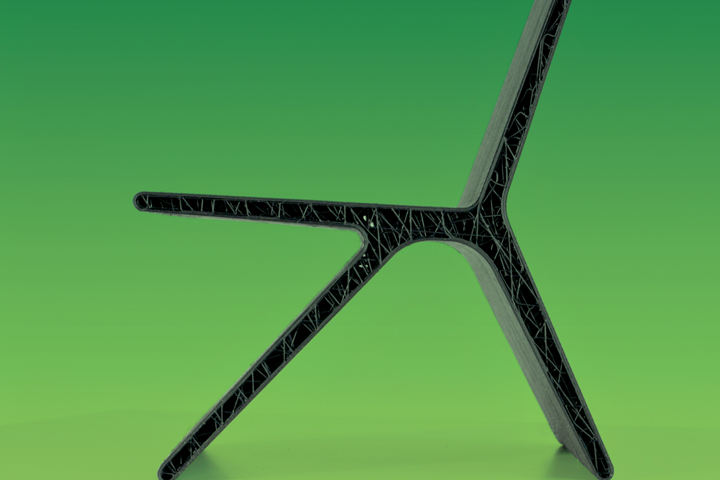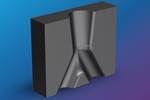Covestro introduces 3D printing material made from recycled PET
Glass fiber-filled rPET suitable for high performance and structural applications using 3D pellet printing/fused granulate fabrication (FGF).

Covestro’s glass-filled rPET material can be used to make, for example, furniture such as this chair, designed by Michiel van der Kley. Photo Credit: Covestro AG
Materials manufacturer (Leverkusen, Germany) introduces its first material developed by the additive manufacturing (AM) business recently acquired from (Geleen, Netherlands): a glass-fiber filled recycled polyethylene terephthalate (rPET) for 3D pellet printing. Made from post-consumer PET waste, Arnite AM2001 GF (G) rPET brings structural performance to a part at a substantially lower carbon footprint than virgin material, enabling manufacturers to achieve a more circular supply chain without the need to compromise on performance.
Covestro says this technology, also known as fused granulate fabrication (FGF), permits fast and economically viable additive manufacturing of large-size parts. Direct printing of applications lowers cost by reducing product development time, and 3D printing ensures design flexibility, which can help reduce material cost.
Arnite AM2001 (G) rPET’s mechanical properties and broad processing window makes it ideally suited for structural applications across a variety of industries, including pedestrian bridges, tiles for cyclist or pedestrian tunnels, architectural applications like cladding or partition walls, in- and outdoor furniture, small boats, packaging crates or tooling.
Related Content
-
HRC, Airbus LSC launch aircraft dismantling, recycling project
The first project is underway to recover carbon fiber used in an A330-200 aircraft, which will then be regenerated for other end uses by HRC.
-
All-recycled, needle-punched nonwoven CFRP slashes carbon footprint of Formula 2 seat
Dallara and Tenowo collaborate to produce a race-ready Formula 2 seat using recycled carbon fiber, reducing CO2 emissions by 97.5% compared to virgin materials.
-
DITF oriented rCF tapes target virgin fiber CFRP substitution
Infinity project developed highly oriented rCF/PA6 tapes with 88% the tensile strength, modulus of a virgin CFRP product and 49-66% reduction in global warming potential.



